The municipalities of Belene, Nikopol and Gulyantsi are part of the Pleven district, the capital of the EU North-West Planning Region of Bulgaria. The three municipalities progressively lost a significant part of their active population in the years after 1989. This is a result of the opening of Bulgaria to the world during the transition to a democratic society and a functioning market economy. For a number of economic and social reasons, many local people choose to emigrate to larger cities inland or other countries, mostly in the EU. According to the 2011 census, the three municipalities had a total population of 32,000, and after the 2021 census the total population is 25,000. It is a 22% decrease for the last 10 years, most dangerous is the situation in Belene municipality where every fourth of the local people had left the area in the last ten years. But it is similar in the neighboring municipality of Svishtov, where population fell down with 24% in the last ten years, nevertheless there is a Financial Academy in the town. The municipalities of Belene, Nikopol and Gulyantsi, together with the municipality of Svishtov, are forming a tourist micro-region that covers the southernmost part of the Danube River. It contains a number of cultural and natural resources. Among the most important of them are the remains of the Roman settlements of Ulpia Escus and Novаe, as well as the largest natural park in the Bulgarian section of the Danube River – “Persina”. We call this region Ulpia Escus – Novae BG in the DANUrB platform.
The main problem in this region is the shrinking situation and how it can be overtaken by local stakeholders with more engagement in heritage revalorization. The main goals are to connect the municipalities and to build up a stakeholders network based on strengthening local identity. We started with identifying local advantages and analyzing the disadvantages of social situations. Then we increased the trust between local stakeholders and the BlueLink team and eventually developed a social capital, based on local symbols. During the creation of the action plan we focused on knowledge transfer and education, especially with some vulnerable groups like pupils in local schools and fishermen groups, but also the local authorities in charge of tourism.
The first step was to prepare a strategy for local development, based on the valorisation process. The municipality plans for integrated development are strategic documents on a local level, but we tried to link them on a regional level, and gave some recommendations on how they can work out for common goals according to the national strategy of touristic development in the Danube region. It includes the legislation frame and analysis of local resources with potential to be transformed into complex touristic products. We tried to strengthen the local identity via exploring unique common local symbols – like the first bulgarian printed book Abagar (1651), which were made in this region. The main action is to create a regional tourist association which will be in charge of 16 small projects, which are part of the action plan in the next few years.
In the very beginning of the project we didn’t expect to have so many obstacles, but at the end the results were very stimulating. We made the action plan together with the municipalities and even held an official ceremony for signing it. We learned that all is about passion – we should put passion in all of our everyday routine actions.
We plan to continue our efforts in following our action plan. The year 2023 seems to be without activities, but thanks to our social capital in the region we might be able to produce a couple of our small projects thanks to local support and donations. For example, we have already started creating the local literal route based on the Abagar book and digitalization. Thanks to our good relationship in the region we expected a few local organizations to be promoted as partners and ASP in the next DANURB projects. We expect to strengthen our activities from the beginning of 2024 with possible continuation of the DANURB 3.3. project in partnership with the Tourism Council of Svishtov and the Finance Academy of Svishtov.


